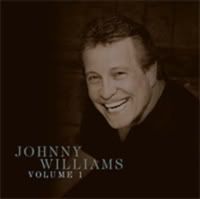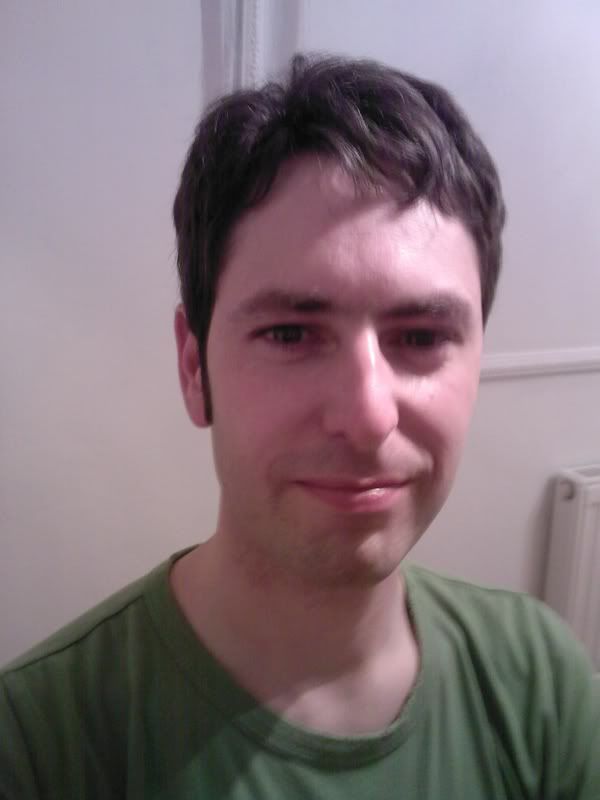 RIP Bill Pinkney, 15th August 1925 - July 4th 2007
RIP Bill Pinkney, 15th August 1925 - July 4th 2007Yesterday, Bill Pinkney, the last original member of The Drifters, passed away in Daytona, Florida. He had continued his career as a Drifter unbroken from 1953 to the present day, and had been due to perform for a 4th July event.
As well as contributing his distinctive bass to the early hits of the Drifters, Bill stood as a testament to musical integrity, defiantly fighting to use the name of Original Drifters after he and the other founder members were summarily sacked by their management in 1958, and campaigning for a law which requires a band to include at least one original member if it wishes to claim to be the genuine article.
Bill's life up until 1953 was equally remarkable. Born in Dalzell, South Carolina, Bill Pinkney used to listen to his mother, a choirleader in a church in Woodrow, South Carolina, and started to perform gospel himself at the age of 12 with a group called the Wandering Four. Bill Pinkney joined the US Army to fight in France, and took part as one of 1,500 black troops in the initial assault to secure the Omaha and Utah beaches on D-Day, helping to set up and maintain barrage balloons over the beachhead, delivering ammunition and supplies constantly throughout the assault, dealing with the wounded, and in the following days liberating several villages. Pinkney was assigned as a technician in a combat support unit attached to the 3rd Armoured Division. For his part in outstanding acts of courage supporting the 101st Airborne and fighting shoulder-to-shoulder with them at Bastogne, Bill was the proud recipient of the Distinguished Unit Citation (now known as the Presidential Unit Citation) with Four Bronze Stars, denoting service in Normandy, The Battle of Saint Lo, Bastogne, and crossing the Rhine. That Saint Lo action tells you that Bill had a role as a technician in the transport route known as the Red Ball Express, which trucked supplies from Saint Lo to the front line, which is how Bill became trapped in Bastogne with the 101st Airborne whom he was bringing supplies to. After the war, Bill moved to New York and tried for sporting fame, as a pitcher from 1949 to 1951 in a Negro Baseball League with the New York Blue Sox. He also began singing with gospel groups the Jerusalem Stars and The Southern Knights. However, by 1953, Bill had decided he needed a more regular job, and he was running a car dealership.
Watch an interview with Bill Pinkney from 2005 about his career...
 It was in 1953 that Bill Pinkney was contacted by his old Southern Knights colleague Gearhart Thrasher. Clyde McPhatter, another old aquaintance on the gospel circuit, had an r&b contract with Atlantic Records, but was in need of a new group to back him, after the first group, the Mount Lebanon Gospel Singers, were rejected by Ahmet Ertegun. Billy met up with Gearhart and his brother Andrew 'Bubba' Thrasher and local labourer Willie Ferbie. The group were among those strongly influenced by the harmonising gospel quartet style of The Orioles, and Bill's deep bass helped to complement Clyde McPatter's soaring melodic lead tenor. It was a sensation in r&b music. The group secured a contract, and Clyde revealed the name Drifters at the end of the sessions after a worried Gearhart Thrasher asked him what they were going to call themselves!
It was in 1953 that Bill Pinkney was contacted by his old Southern Knights colleague Gearhart Thrasher. Clyde McPhatter, another old aquaintance on the gospel circuit, had an r&b contract with Atlantic Records, but was in need of a new group to back him, after the first group, the Mount Lebanon Gospel Singers, were rejected by Ahmet Ertegun. Billy met up with Gearhart and his brother Andrew 'Bubba' Thrasher and local labourer Willie Ferbie. The group were among those strongly influenced by the harmonising gospel quartet style of The Orioles, and Bill's deep bass helped to complement Clyde McPatter's soaring melodic lead tenor. It was a sensation in r&b music. The group secured a contract, and Clyde revealed the name Drifters at the end of the sessions after a worried Gearhart Thrasher asked him what they were going to call themselves!
Thus began a series of r&b hits, amongst which Bill sang lead parts on White Christmas, their biggest hit of all time, Steamboat, I Should Have Done Right, Bip Bam, and Soldier Of Fortune. Bill's presence in the group was soon resented by their manager George Treadwell, as Bill, acting as road manager, frequently argued that the group were not getting their fair share of the ticket receipts for their shows.
"I was a singing road manager, well there was a fellow name of Charlie Carpenter, he was the manager of a show for Mr Fell, every week he would pay everybody. With the Drifters money, I had to pay Gearhart, a man by the name of David, and a guitar player by the name of Jimmy Oliver... I had to take this money back to New York in a suitcase, cash, and I was making $200 for the week, and the others would get £180, $175, and I would get a few more dollars under the table. Anyhow, I'd dump that suitcase of money, .. then I'd go on back, and get another tour started .. til I finally got hip! I said, you know what, this man is sitting down in his office in New York, we've doing all the work! Atlantic Records paying Jesse Stone, we went in and did the recording, and [George] Treadwell was climbing fat as a manager! He should have only won a percentage of what the Drifters made, not all of the money. So we talked it over with the rest of the Drifters and they said, Yeah you talk to George, we want raise in pay..."
A pay rise was not forthcoming, and he was summarily fired. After that, Bill went off and recorded some rock and roll themed tracks with a band called The Turks (or The Perks according to itunes!) The rest of the Drifters, chastened by Mr Treadwell, carried on, but were all finally fired from their own band in 1958, after a dispute at the Apollo Theater, and George replaced the entire line-up!
Bill persuaded the original group to stick together, and kept them going on a lucrative touring schedule, gaining a solid following in the Southeast. At first they went under the name of The Harmony Grits, and recorded some singles in 1959 with David "Little David" Baughn, who had been one of the singers Clyde had originally picked for his group. Later, Johnny Moore, who had also left the Drifters to go solo, got Bill's group to back him on several songs he recorded under the name Johnny Darrow, thus renuniting the 1957 Drifters line-up. But it occured to Bill and the others that they had every right to stake a claim to the Drifters name themselves, and so The Original Drifters were born. In 1964, they recorded Don't Call Me and I'll Do The Jerk, on Fontana Records, with temporary lead singer Jimmy Lewis. In 1966, they recorded another, for Veep Records, I Found Some Lovin' backed with the slow classic The Masquerade Is Over. I love this song, especially Nancy Wilson's version, but I would love to hear this rendition by the Drifters some day.
As the line-up of the Atlantic Records' Drifters continued to change, it seemed more and more Drifters were competing and claiming the same authenticity! Both Johnny Moore and Charlie Thomas would continue their own Drifters on the groups departure from Atlantic. This Bill's Original Drifters could accept, seeing as there was some connection to the classic group. Indeed, in 1976 Johnny Moore's Drifters paid the complement of covering (More Than A Number) In My Little Red Book, which the Originals had written and recorded back in 1967.
As the 70s arrived, however, the Drifters name became further clouded by bands that had little claim to the name. One group that Bill had hired and rehearsed to go on a tour after the other Originals had decided to retire, The Tears, dumped him and toured for many years as The Drifters. In the 80s and 90s, other groups, like the Nu Drifters, worked almost like Drifters 'franchises'. Bill Pinkney became involved in campaigning for the rights of artists who were being denied control over the identity that was their livelihood. And right up to the present, Bill had kept faith with authenticy by including the son of the founder of the Drifters, Ron McPhatter, Clyde's son, in the Originals, alongside Richard Knight Dunbar, of duo The Knight Brothers fame. The group also ventured into gospel in recent times, recording as The Gospel Drifters.
Bill was awarded the key to the state of South Carolina, which proclaimed May 14 as Bill Pinkney Day. Not least amongst his other honours must stand his 2001 honorary doctorate for services to South Carolina's state dance, the Shag!
The Drifters - Bip Bam (B side of Atlantic 1043) 1954
The Drifters - Steamboat (B Side of Atlantic 1078) 1955
The Drifters - I Should Have Done Right 1956
Information found at BBC News, www.originaldrifters.com , Soulfulkindamusic, wikipedia (!), the South Carolina African American History Calendar, and most especially from the amazing research of Marv Goldberg's R&B Notebooks, (also his Original Drifters Notebook ). Vince Welsh has recorded an interview with Bill Pinkney which you can watch. Also of interest is the regimental history page of the 761st Tank Battalion. Info concerning black soldiers on D-Day can be found in an article by Marian Douglas at Afrigeneas. Gregory Kane writes an interesting article about the contribution of black soldiers fighting at Bastogne in the Battle of The Bulge.






3 comments:
More information about black troops on D-Day at Omaha and Utah beaches. I haven't found anything to indicate what unit exactly Bill Pinkney might have served with, but it has to be one of these:
"In fact, of the U.S. First Army's Omaha Beach assault forces on D-Day, less than 500 out of 29,714 troops were black. These were one section of the 3275th Quartermaster Service Company and the above-mentioned 320th Antiaircraft Balloon Battalion (VLA) (less one battery). Of the 31,912 U.S. troops landing on Utah Beach, approximately 1,200 were African-Americans and included troops of the remaining battery of the 320th Balloon Battalion, the 582d Engineer Dump Truck Company, the 385th Quartermaster Truck Company, and the 490th Port Battalion with its 226th, 227th, 228th, and 229th Port Companies."
- http://www.skylighters.org/barrageballoons/
If you've been coming back several times to read this post, you'll have noticed that it has changed and grown several times over the past day, as I research more into the exact role Bill might have played in WWII. Originally I assumed he had served withthe 761st Tank Battalion, known as the Black Panthers. After watching the movie clip again, I think it is more accurate now.
Rob---What a wonderfully informative tribute post. As always, I've received quite an education by stopping by here.
Hope you're well.
Post a Comment